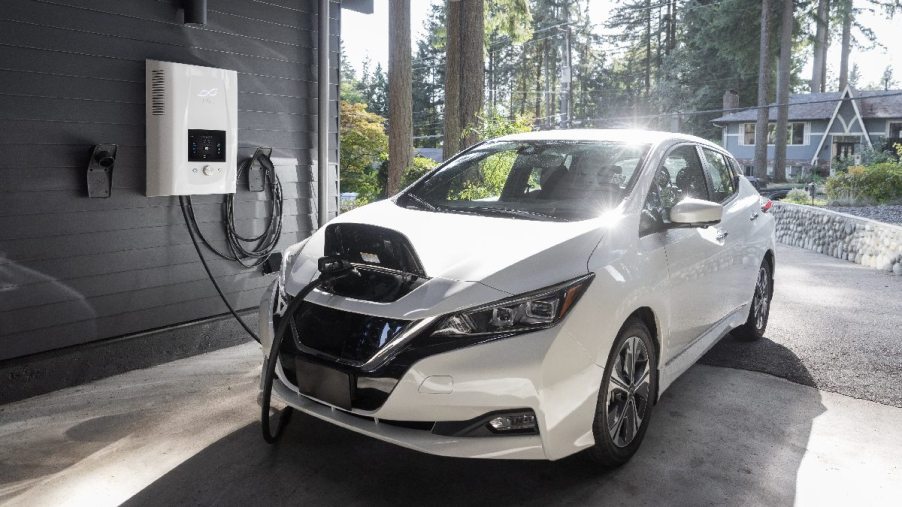
Is It OK to Leave an EV Plugged in All the Time?
EVs are a new thing for many drivers, leading to uncertainties and questions about how they function. A frequent question that comes up for electric cars is whether it’s OK to leave an EV plugged in all the time — or if it’s ok to always charge it overnight. Read more to find out the answer.
Charging an electric car all the time or always overnight degrades the battery

While, if necessary, you can sometimes charge an electric car overnight, it’s best to avoid it whenever possible. Above all, it’s not OK to leave an EV plugged in all the time. The primary reason for this is that it degrades the battery. With degradation, the battery has poorer performance and a shorter lifespan.
Most EVs are powered by lithium-ion battery packs. Over time, the repeated cycle of charging and discharging the lithium-ion battery pack causes it to degrade over time.
So, by not leaving an electric car plugged in all the time and not frequently charging it overnight, you reduce the number of charging cycles. And as a result, there will be less degradation of the battery. Whenever an EV charges, stress is placed on the battery — so you should avoid charging if it’s not necessary.
Don’t always charge an electric car to a 100% capacity

It’s also best not to always charge an electric car to a 100% capacity. As detailed by Autotrader, researchers at the University of Michigan conducted a study to determine the best methods for extending the lifespan of lithium-ion batteries in EVs. A key recommendation from the study centers on the state of charge (SOC) of a battery. The SOC is the battery’s estimated available power.
According to the study, owners of electric cars should reduce the amount of time the battery spends at a 100% charge — and the opposite extreme — a 0% charge. With either an extremely high or low SOC, the battery degrades and has a shorter lifespan.
Fortunately, EVs typically have battery management systems, which help prevent charging and discharging at the extremes of 100% or 0%. Also, for most electric cars, you can set the chargers to turn off when the battery reaches a specific SOC.
It’s generally recommended to have an SOC between a 30% to 80% battery capacity. While there might be times when you need to charge your electric car to 100% to get the highest possible driving range, you shouldn’t do it all the time or overnight on a frequent basis.
Most EV owners don’t drive far enough to warrant always charging overnight
Another reason to avoid leaving an EV plugged in all the time or always charging it overnight is that, in most cases, it’s not necessary. Most electric car owners don’t drive far enough to warrant doing so.
The average distance that Americans drive each day is 39 miles. Even electric cars with the lowest driving range can cover this distance. Also, the number of charging stations across the country is significantly increasing, making it easier to charge your EV when you’re on your road.
Unless you have a lengthy commute or are taking a long trip, it’s not necessary to charge your electric car overnight. And regardless of your situation, you should not leave an EV plugged in all the time.
Another way to think of it is from the perspective of a gas-powered car. One doesn’t top off the fuel tank in a gas-powered car at a gas station every day. Likewise, you don’t have to charge an electric car to a 100% capacity every night.


